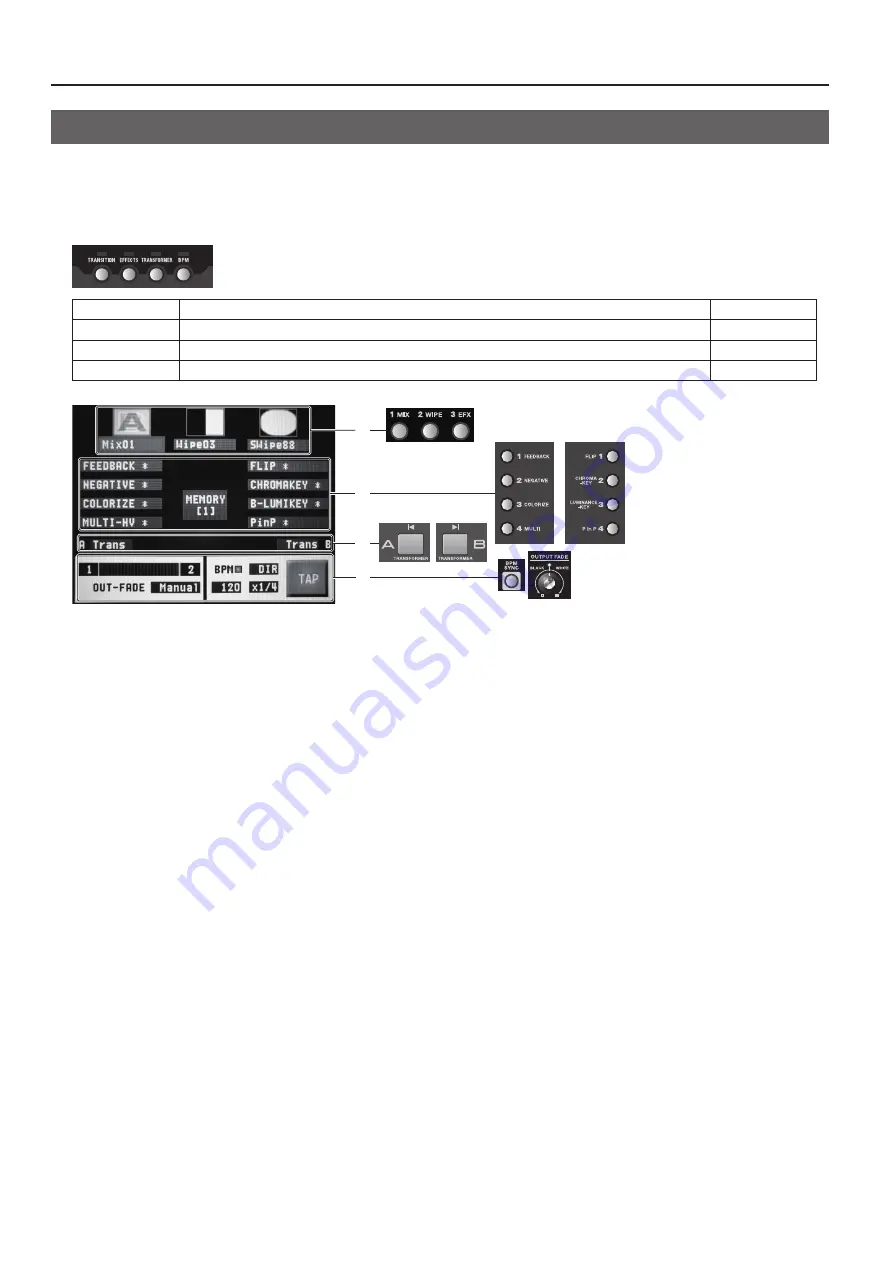
26
Basic Operations
Changing Various Settings
You can use the buttons under the built-in monitor to access various setup screens.
* Only the screen associated with the pressed button is displayed. The other areas of the monitor display the picture selected by the view mode.
* The setup screens are displayed overlaid on the picture on the monitor. You can hide the picture on the monitor by pressing the lighted
MONITOR button to make it go dark.
fig.setup-buttons.eps
TRANSITION
Press this to change transition effect settings.
EFFECTS
Press this to change filter/composition effect settings.
TRANSFORMER
Press this to assign an effect to a Transformer button.
BPM
Press this to change the automatic switching rhythm or to change the output fade mode.
fig.setup-screen.eps
1
2
3
4
1 Transition Effects
Pressing the [TRANSITION] button displays only this area. From left to right, these correspond to the [1 MIX], [2 WIPE], and [3 EFX]
buttons.
Use the touch panel to choose the transition effect (1 through 3) whose settings you want to change, and turn the [VALUE] dial to
select the transition effects assigned to the respective buttons.
2 Filter/Compositing Effect
Pressing the [EFFECTS] button displays only this area. The left side corresponds to Effect buttons 1 through 4 for A-Bus, and the
right side corresponds to Effect buttons 1 through 4 for B-Bus.
Use the touch panel to choose the Effect (A1 through A4 or B1 through B4) whose settings you want to change, and turn the
[VALUE] dial to select the filter/composition effects assigned to the respective buttons.
3 Transformer
Pressing the [TRANSFORMER] button displays only this area. It corresponds to the A-Bus and B-Bus Transformers.
Use the touch panel to choose the bus (A or B) where you want to assign a transition effect, and turn the [VALUE] dial to select the
transition effect to assign.
4 BPM
Pressing the [BPM] button displays only this area.
For detailed information on BPM, refer to “Switching Automatically in Time with the Musical Rhythm” (p. 29).
This area displays the following information.
• Channel selected for A-Bus/B-Bus
• Position of the video fader
• Output fade mode
•
Summary of Contents for V-4EX
Page 2: ...2 ...
Page 47: ...47 Appendices ...
Page 48: ...48 Appendices ...
Page 49: ...49 Appendices ...
Page 51: ...51 Appendices Slide Normal Slide Sequential ...
Page 52: ...52 Appendices Stretch ...
Page 62: ...62 ...
Page 63: ...63 ...
Page 64: ......






























